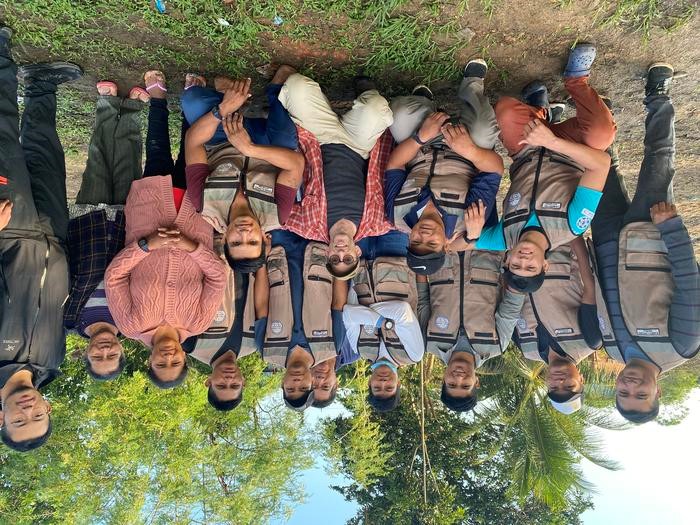Alzheimer's-Linked Gene Fuels Fertility Surge in Women
In the pursuit of unraveling the persistence of the detrimental Apolipoprotein-ε4 (APOE-ε4) allele in the human population – a genetic variant linked to heightened risks of Alzheimer's and cardiovascular diseases – researchers embarked on a collaborative study with the Tsimane community in Bolivia. Led by UC Santa Barbara anthropologist Michael Gurven and Arizona State University's evolutionary anthropology associate professor Benjamin Trumble, the team delved into the evolutionary implications of the allele.

Figure 1. The Tsimane Health and Life History Project mobile field team. (Credit: Michael Gurven)
The Tsimane, residing in the Bolivian Amazon lowlands, were the focus of the investigation due to their traditional forager-horticultural lifestyle, reminiscent of pre-Industrial Revolution human existence. This setting provided a unique lens through which to examine health and aging without the influences of contemporary amenities. The Tsimane Health and Life History Project, a long-standing collaboration involving U.S. and Bolivian anthropologists, clinicians, and medical experts, facilitated the collection of extensive demographic and biomedical data over two decades.
In this specific study, 795 Tsimane women, aged 13 to 90, were analyzed. Genetic data elucidated prevalent alleles in each individual, while detailed reproductive histories offered insights into fertility patterns, encompassing age of first childbirth, interbirth intervals, and total live births.
Remarkably, the presence of the APOE-ε4 allele in Tsimane women correlated with a notable increase in fertility. Those with a single copy exhibited 0.5 more births, while those with two copies displayed an average of two additional live births. This advantageous effect on fertility, occurring in early to mid-life, potentially accounts for the allele's persistence despite its later-life disease associations.
The concept of "selection's shadow" – genes linked to post-reproductive diseases evading selection – was discussed. APOE-ε4, by conferring fitness benefits earlier in life, becomes less prone to eradication by natural selection. This notion parallels smaller studies highlighting further benefits of the allele, including enhanced pathogen resistance and cognitive function in certain populations.
Notably, the Tsimane, despite sharing the APOE-ε4 prevalence, exhibit remarkably lower rates of Alzheimer's and dementia. This juxtaposition underscores the impact of diverse environments on genetic effects.
These findings prompt a shift from a deterministic perspective of "allele causes disease" towards a broader consideration of environmental contexts. Understanding the interplay between APOE-ε4 and different habitats could reshape disease prevention strategies, potentially unveiling conditions where the allele may offer benefits rather than detriments. This exploration offers an avenue to explore novel paths in tackling the allele's negative effects.
Source: University of California - Santa Barbara
Cite this article:
Hana M (2023), Alzheimer's-Linked Gene Fuels Fertility Surge in Women, AnaTechmaz, pp.495

